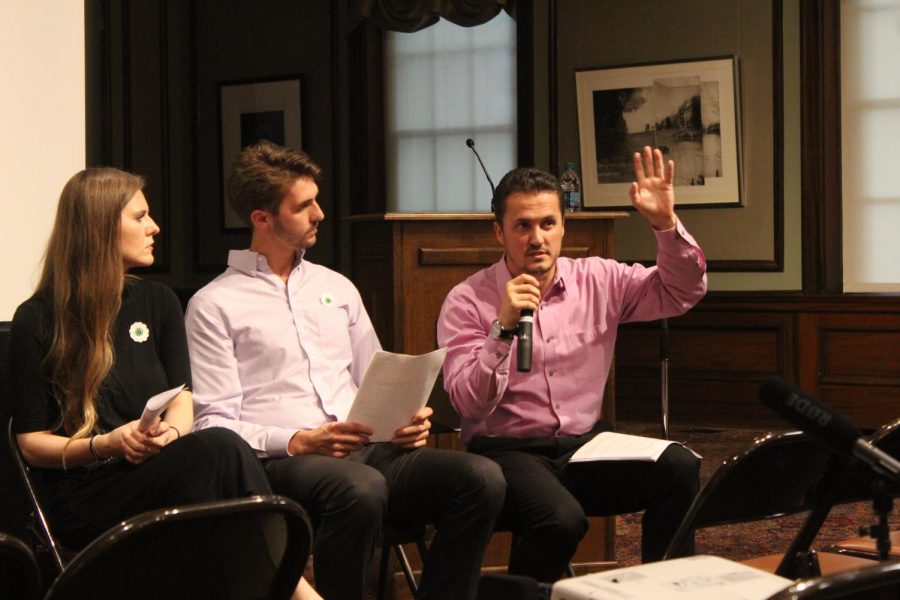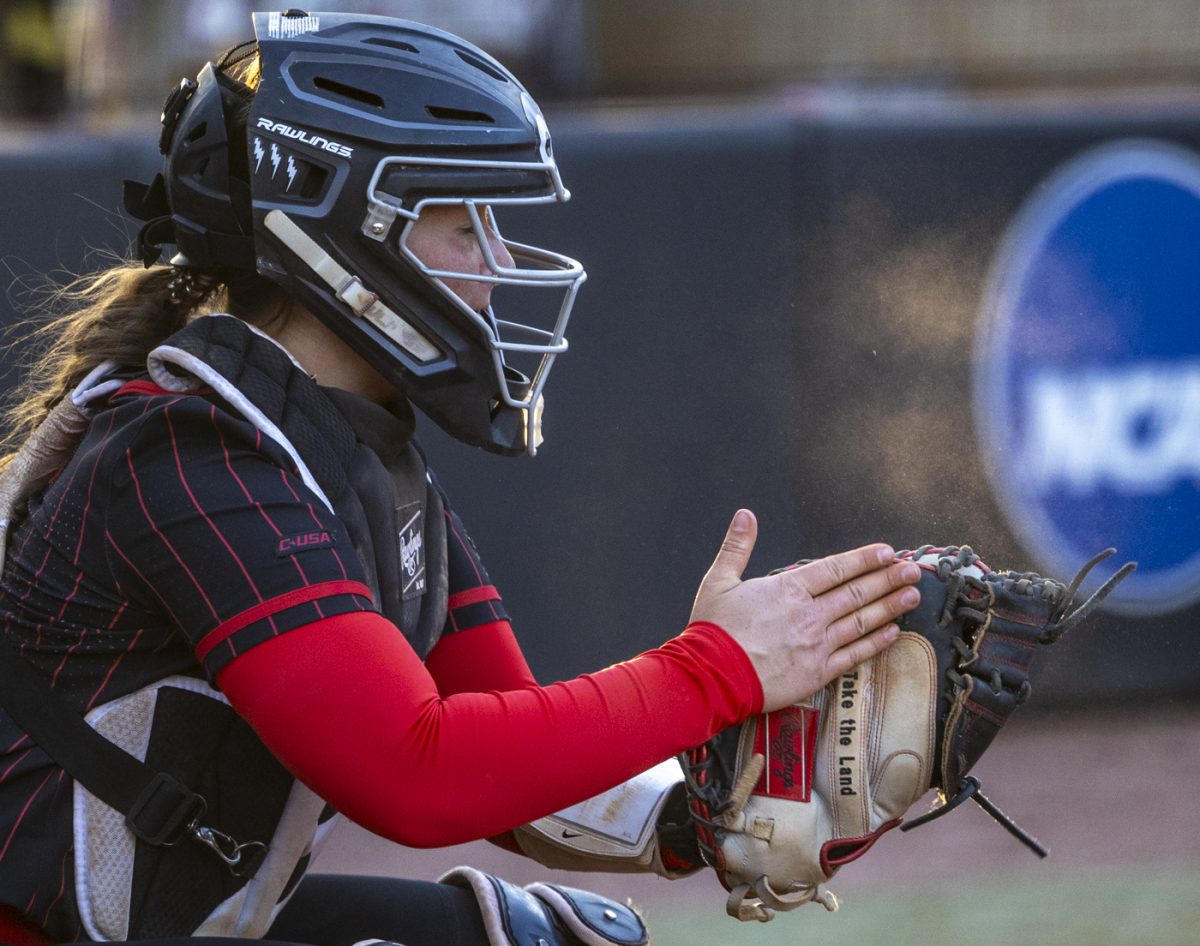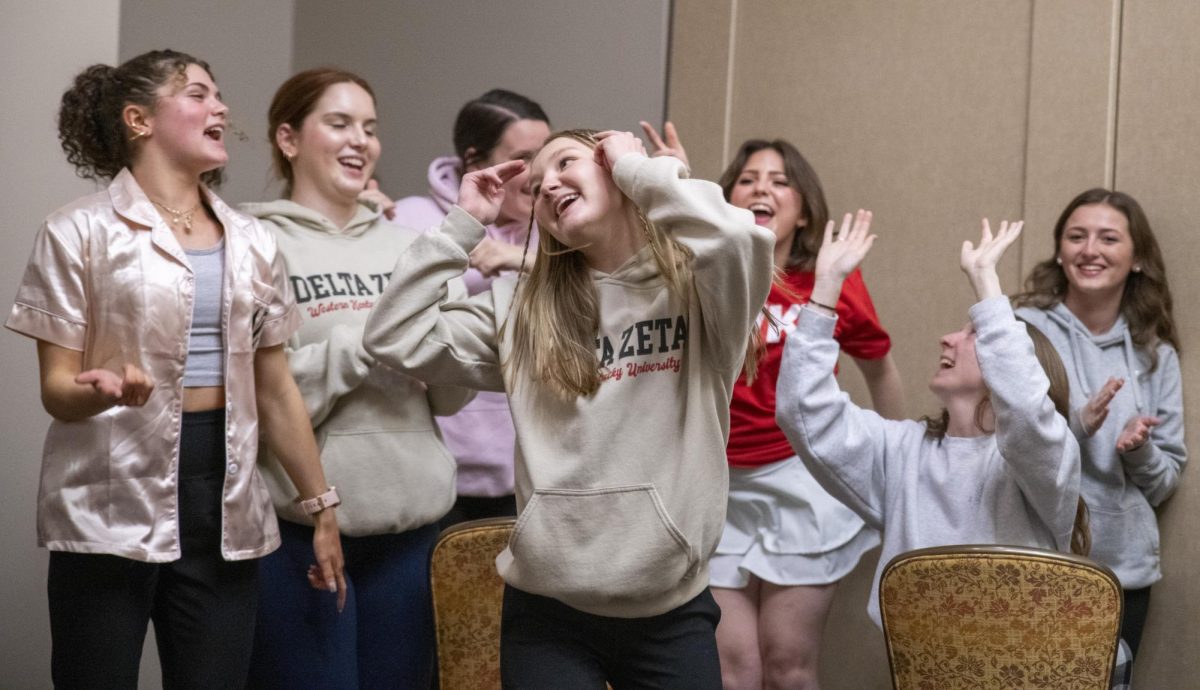Panelists discuss legacy of Srebrenica Genocide at symposium
July 12, 2018
WKU faculty members and Bosnian-Americans discussed how to improve the future of Bosnia after the Srebrenica Genocide and the Bosnian War during Wednesday’s Srebrenica Genocide Symposium at the Kentucky Museum.
The Srebrenica Genocide took place 23 years ago, on July 11, 1995, where more than 8,000 Muslim Bosniaks were killed by the Bosnian Serb Army of Republika Srpska during the Bosnian War. Many killed in the genocide were men and boys older than 13 years old.
The symposium was the first of two events for 2018 Walk to Remember Srebrenica. The second event will be a march taking place at the Circus Square Park on Saturday, July 14.
Brent Bjorkman, director of the Kentucky Museum and the Kentucky Folklife Program, said that the symposium and the march began in July 2015 on the 20th anniversary of the genocide. He said the Walk to Remember Srebrenica events were meant for remembrance of the genocide and to validate the Bosnian community, which he said makes up about ten percent of the population in Bowling Green.
“We’re all Kentuckians and we all bring our lives to this community and give back to the community,” Bjorkman said.
The WKU panelists at the event included Addie Cheney, assistant director for WKU’s Office of International Programs, and Jennifer Brinkley, assistant professor of paralegal studies at WKU.
The Bosnian-American panelists at the event included Imam Sedin Agic from the Islamic Center of Bowling Green, Sabina Husic, one of the event organizers for Walk to Remember Srebrenica, and Amer Salihovic, another event organizer for Walk to Remember Srebrenica and committee member for the Bowling Green Bosnia Oral History Project.
The symposium began with the viewing of a documentary called “Bad Blood,” which was created by Bosnian-American Rialda Zukic. In the film, Zukic returned to Srebrenica, which was where she grew up in a Bosniak family, and talked to members of the Bosniak youth in the town about their lives, following the genocide and the Bosnian War.
During the panel, the panelists discussed how to improve the conditions in Bosnia and how to prevent infamous events like the Srebrenica Genocide from happening again.
Cheney and Brinkley both said that focusing on the Bosnian youth was important. Agic said he believed that if civilizations did not remember their histories, then they would be punished by God.
Salihovic gave his perspective as a Bosniak who was born in the country and moved to the United States when he was a child. He said that the youth in Bosnia had to lead the effort to commemorate the genocide and change the country for the better.
“As far as next steps, we need to give these people hope,” Salihovic said, referring to the youth and benefitting Bosnia. “Why don’t a single one of my friends believe that it’s possible? Where did that hope go?”
Salihovic said he wished he never had to march to remember the Srebrenica Genocide because he wished that it had never happened. However, he said that he feels like he has to march because of the importance of remembering those killed in the genocide.
“We need to make people aware of what happened to us,” Salihovic said.
Husic, who lost her grandfather and three uncles in the genocide, said that the Bosnian youth in Bowling Green, among other cities, are motivated about the commemoration of the genocide. She said this was because they were not able to fully heal from the event like other Bosnian people who continued to live in the country years after it took place.
Husic said that the Srebrenica Genocide was significant to her and other Bosniaks because it was not committed by people outside of the country.
“This wasn’t done by some outside force,” Husic said. “It happened by our neighbors, by our friends. Those were the people who did that to us.”
Husic said that members of the public should not sit “idly by” about commemorating those lost in the genocide.
“It may be easier to keep quiet, but as someone who survived it, I can’t keep quiet about it,” Husic said.
Nicole Ziege can be reached at 270-745-6011 and nicole.ziege825@topper.wku.edu. Follow Nicole Ziege on Twitter at @NicoleZiege.













